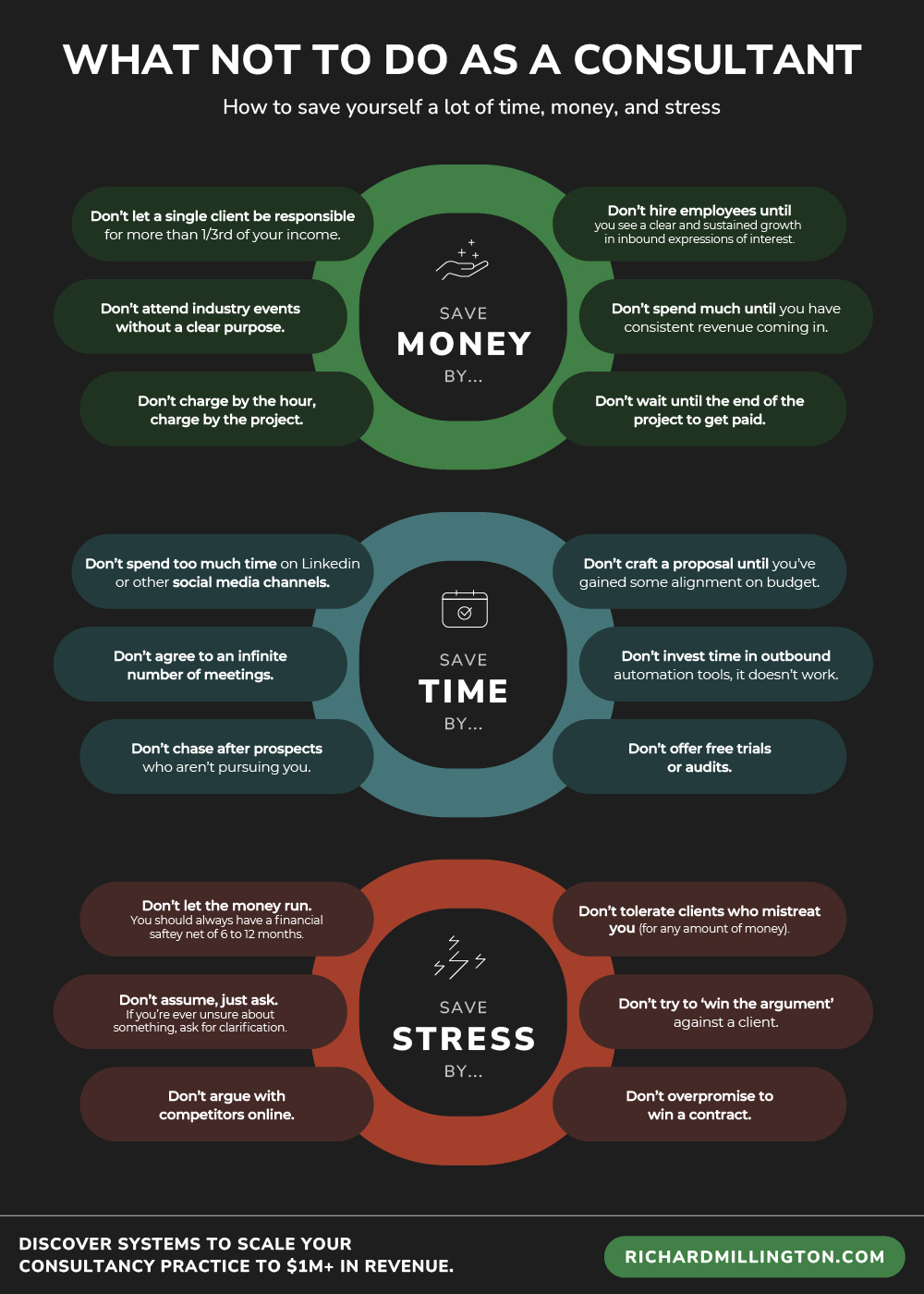WHAT NOT TO DO: 19 Things To Stop or Avoid Doing
Learn from the many, many, mistakes I've made over the past 17 years of consulting. Here's what I've seen too many consultants doing - and should really stop.
Hi, I’m Rich. Welcome to my weekly newsletter where I share systems and frameworks for scaling your consulting practice from $0 to $1m+ in revenue.
You can get 1:1 personal coaching or explore my new program: Indispensable Consulting Systems.
You Can Avoid Plenty of Common Mistakes
Seventeen years in, I have plenty of experience in what not to do.
Here’s a brief compilation of things I’d advise avoiding to save you time, effort, and misery.
I’ve put them into emotional, time, and money brackets.
Financial Avoids
It’s most important to avoid the things that consume vast amounts of resources with little to show for it. Here are some of the things I’d strongly advise you don’t do.
Don’t hire employees (until you absolutely have to). The quickest way to turn a successful practice into a struggling one is to hire employees. Just enjoy the healthy profit margins and stay small. Your life will be a lot less stressful and far more enjoyable. If you don’t plan to sell the business at some point, hi…



